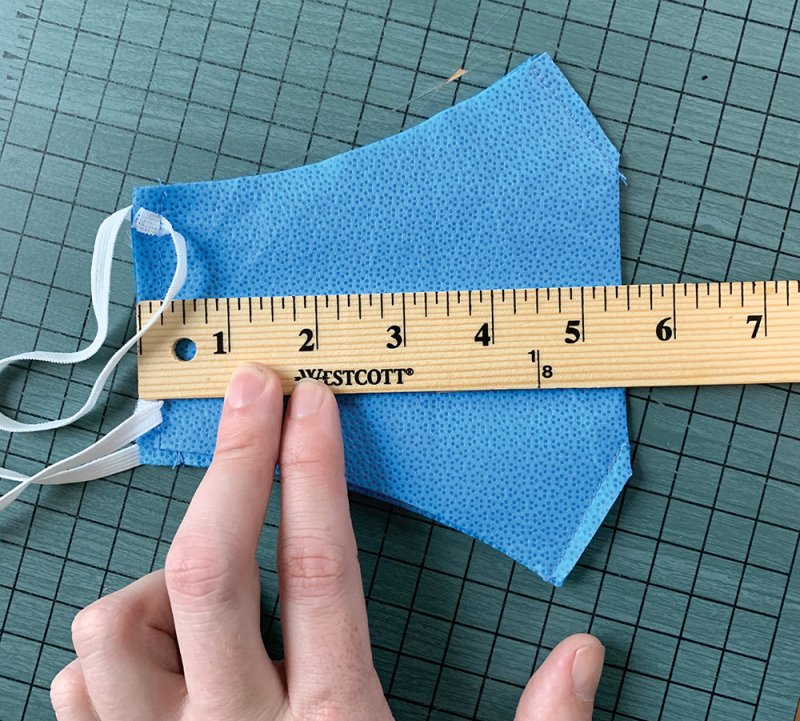 A mask being made by an employee at Circular Blu. Courtesy photo.
A mask being made by an employee at Circular Blu. Courtesy photo.
Before and during the pandemic, Circular Blu has found ways to help hospitals recycle their waste to create new products.
The Bradford-based firm, founded by Chris Bodkin, CEO, Gavin Bodkin, COO, and Jon Flanders, chief innovation officer, is a consulting firm that helps the health care industry and corporations find “circular economic solutions for linear waste streams.”
“In college, I worked in health care sustainability,” says Chris Bodkin. “In looking at waste in health care, there was this huge sterile waste stream going into landfills that could easily be segregated, collected and turned into products to sell back to the hospital.”
Pre-COVID, Circular Blu’s market was primarily hospitals, conferences with corporate giveaways and manufacturers. “One of our goals was to eliminate single-use patient belonging bags and replace them with bags made from the hospital’s sterile medical waste. If the patient doesn’t want the bag, they can recycle it and keep the loop going.”
When the pandemic struck, the company was able to use its connections to source health care plastics that manufacturers were recycling that could be made into masks and gowns. They turned 792,000 pounds of material into PPE, including more than 700,000 gowns and 174,000 masks. “It was our responsibility to do something when we could,” Bodkin says. “We also donated thousands of gowns and masks [including] to the Bradford Police Department and the Kearsarge schools.”
He says the company is working to create a suite of all-American circular materials that different types of companies can use in their products, such as ski and snowboard apparel, car covers, footwear and military applications.
“Our reach is growing every day, and the main thing we bring is a model for creating circular material flows that, if done carefully, can increase the bottom line and save money,” he says. “We are in a waste crisis. Tipping fees are going up and waste is contributing to climate change, so it’s important for companies to be intentional about their material flows.”
He says it’s a tough truth that much of what consumers think is being recycled is actually going into landfills. But by creating a product demand, Bodkin says, a value chain is established and then it makes sense to recycle that plastic.
For more information, visit circularblu.com.

 Current Issue - April 2024
Current Issue - April 2024